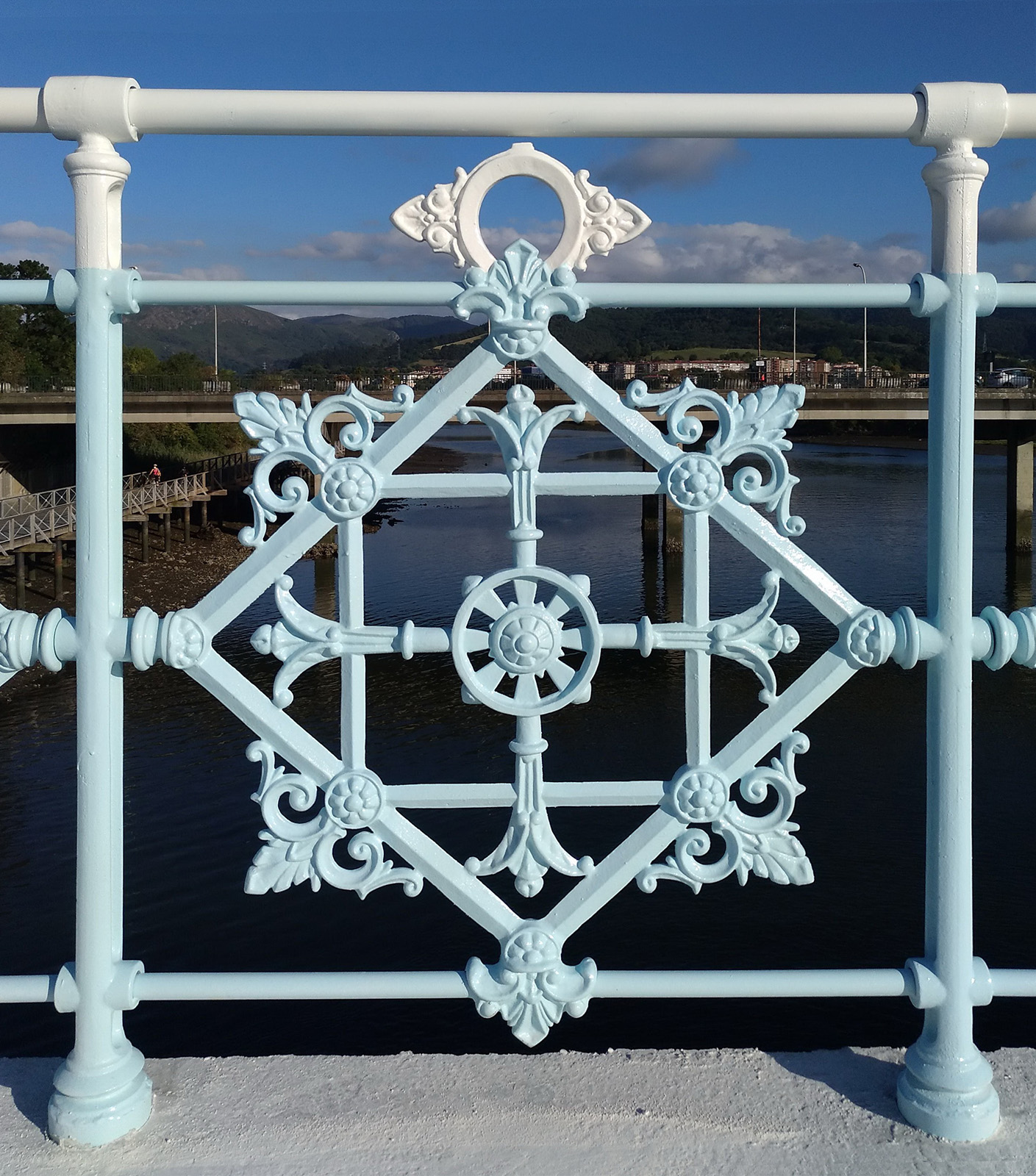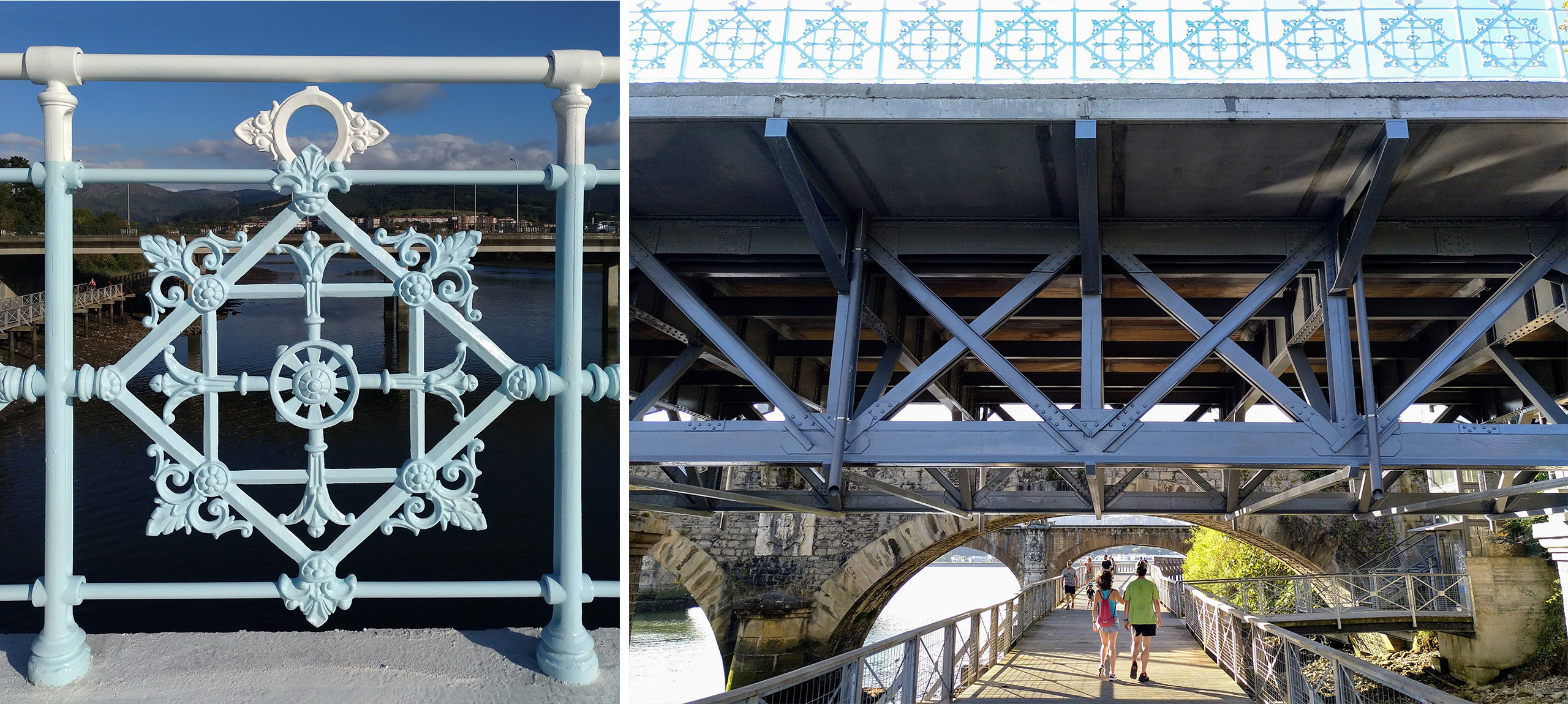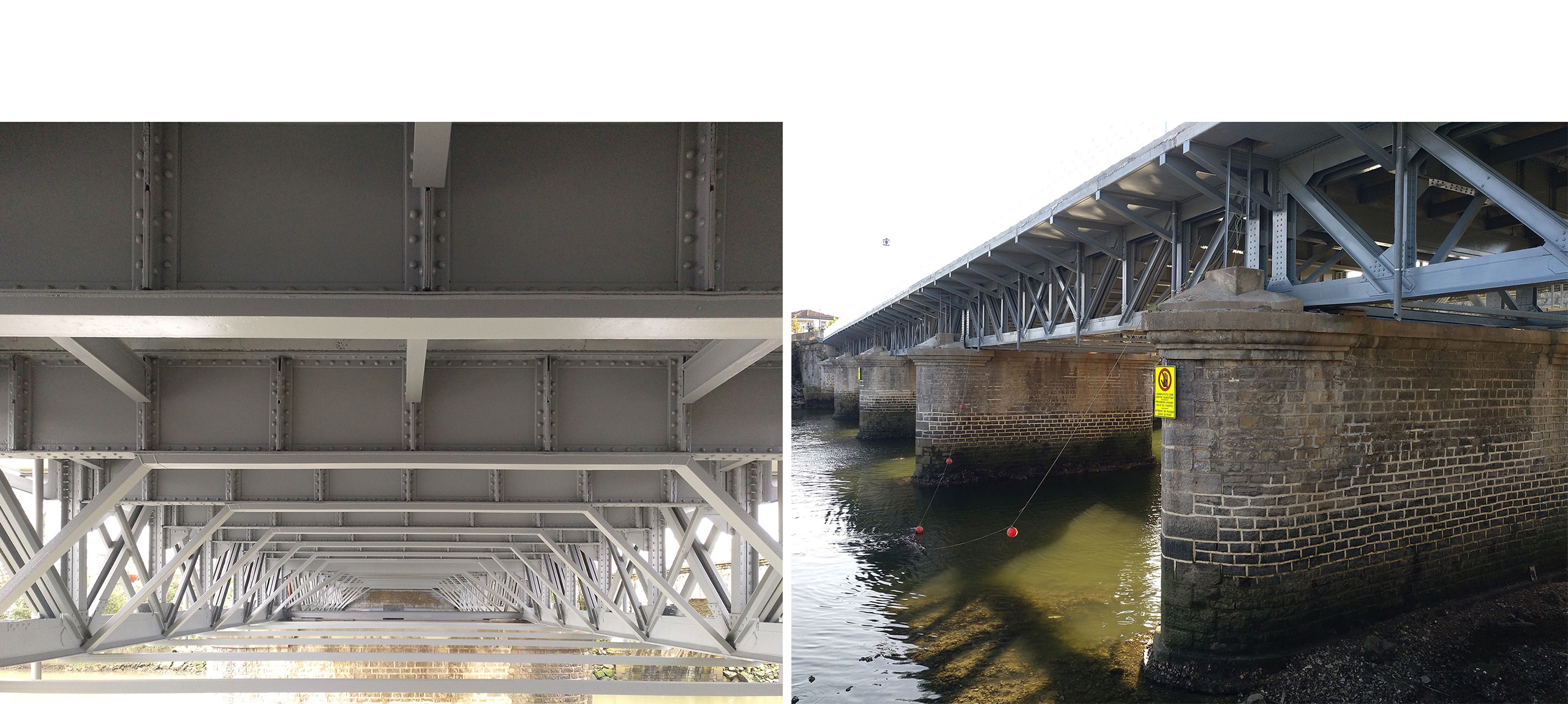
| Rehabilitación del puente Avenida | |
| Irún, España | |
| Tipología | Reparación De Puentes |
| Fecha | Octubre, 2020 |
| Alcance | Proyecto de reparación y dirección de obra |
| Cliente | Ayuntamiento de Irún |
El Puente Avenida, construido en 1915, fue el tercer puente en cruzar el tramo final del Bidasoa, tras los puentes ferroviarios de fábrica construidos en 1864 y 1912. Permitió el cruce de peatones y carruajes entre Irun y Hendaia, entre 1915 y 1966, cuando cerrado al tráfico rodado. Se trata de un puente metálico en celosía de 112 m de longitud, formado por cinco vanos de 22,40 m de luz.
Como todo puente fue concebido para unir, pero su carácter fronterizo y las guerras le hicieron protagonizar sucesos trágicos.
Los trabajos han comprendido la demolición y reconstrucción de las zonas de losa en voladizo, para lo que se han sustituido sus elementos de apoyo por unos que han devuelto a estas zonas su configuración original, alteada en los años 60 del s XX. Además se ha realizado una rehabilitación completa de la estructura metálica, pues un número importante de elementos de la estructura metálica presentaba un grado de corrosión que amenazaba su integridad. Estas actuaciones han requerido apear los vanos mediante dos vigas metálicas de las que se ha suspendido el tablero.
FHECOR e INJELAN recibieron el encargo del Ayuntamiento de Irun de redactar el proyecto de rehabilitación del puente, y de dirigir obras de rehabilitación, realizadas por ACCIONA
Como todo puente fue concebido para unir, pero su carácter fronterizo y las guerras le hicieron protagonizar sucesos trágicos.
Los trabajos han comprendido la demolición y reconstrucción de las zonas de losa en voladizo, para lo que se han sustituido sus elementos de apoyo por unos que han devuelto a estas zonas su configuración original, alteada en los años 60 del s XX. Además se ha realizado una rehabilitación completa de la estructura metálica, pues un número importante de elementos de la estructura metálica presentaba un grado de corrosión que amenazaba su integridad. Estas actuaciones han requerido apear los vanos mediante dos vigas metálicas de las que se ha suspendido el tablero.
FHECOR e INJELAN recibieron el encargo del Ayuntamiento de Irun de redactar el proyecto de rehabilitación del puente, y de dirigir obras de rehabilitación, realizadas por ACCIONA







